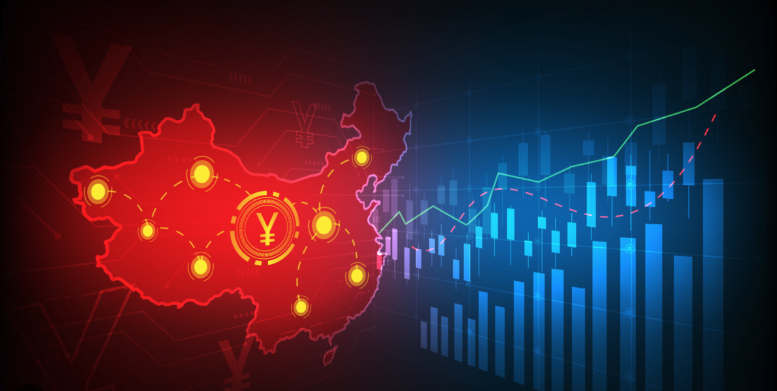In a move that has left economic analysts uncertain of its long-term benefits, Chinese President Xi Jinping recently unveiled a massive stimulus plan aimed at rejuvenating China’s slowing economy. However, as debates ensue, concerns about its potential pitfalls extend beyond the borders of China, threatening global markets and investor sentiments.
The Stimulus Plan Unveiled
Xi Jinping’s stimulus plan is nothing short of ambitious. Intended to refuel China’s economic engine, it focuses on:
- **Large-scale infrastructure projects** designed to employ millions and modernize the nation.
- **Tax breaks and incentives for businesses** to drive investment and innovation.
- **Increased government spending**, particularly in technology and green energy sectors.
While these measures may appear beneficial on the surface, experts argue that deeper issues are being overlooked.
A Myopic Approach
For one, the stimulus plan heavily relies on **state-led investments**. This approach, while successful in past decades, may no longer be as effective in a rapidly evolving global economy. There’s a growing sentiment that China’s government might be prioritizing **short-term gains over sustainable growth**.
Many have pointed out that in the absence of structural reforms, this strategy could exacerbate existing issues:
- **Mounting Debt** – **China’s debt-to-GDP ratio**, already precariously high, is likely to rise.
- **Overcapacity** – Heavy investment in infrastructure can lead to **under-utilized projects**.
- **Property Bubble** – Real estate frenzy could escalate, fueling a bubble in urban regions.

Global Ripple Effects
The implications of a potential misfire in China’s stimulus plan are far-reaching:
Uncertainty in Global Markets
Investors around the world are wary. **Stock markets**, particularly in Asia and the US, have already shown signs of jitteriness. Economies intertwined with China, such as those in Europe and Latin America, are bracing for potential volatility.
Trade and Investment
China’s aggressive spending could drive up demand for **raw materials** and **commodities**, influencing global prices. On a different note, there’s also a lurking danger of **protectionist measures** which could trigger **trade tensions**, especially with long-time trade partners like the US.
Currency Fluctuations
An economic surge in China significantly impacts the **value of the yuan**. This means other nations could experience pronounced currency fluctuations, affecting businesses and consumer prices worldwide.
The Critical Opinion
Renowned economists like **Paul Krugman** and **Mohamed El-Erian** have raised their eyebrows at Xi’s plan. While acknowledging the immediate relief it might bring, they advocate for structural reforms such as **boosting domestic consumption** and **improving transparency** within business practices.
Instead of pouring money into conventional sectors, there’s a pressing need to address **financial imbalances** and improve **regulatory frameworks**.
Potential for Positive Outcomes
Critiques aside, every cloud has a silver lining. By investing in **technology and green energy**, China could potentially set itself up as a global leader in these sectors for the future.
Advancing Technology and Green Initiatives
- If the funds are allocated efficiently, **China** can make **significant strides in technology** and **green energy**, potentially becoming a **benchmark** for innovation and sustainability.
Employment and Income
- In the short term, the stimulus plan will **create jobs** and **increase disposable income**, offering immediate relief for citizens and boosting **domestic consumption**.
Global Collaboration
- This large-scale focus on sustainable projects might also encourage other nations and businesses to **collaborate with China**, leading to advancements in global green initiatives.
While Xi Jinping’s stimulus plan raises more than a few economic eyebrows, it’s clear that the Chinese government is focusing on immediate economic relief and growth. Although the potential pitfalls are significant, there are also opportunities for positive outcomes in technology, green energy, and the job market.
Only time will reveal the true impact, but navigating this intricate web with cautious optimism might just lead to a brighter, more sustainable future for China and the global economy.
In the grand scheme of things, let’s remain hopeful and trust that this bold move will bolster global progress, setting us on a path of shared prosperity and innovative advancements.